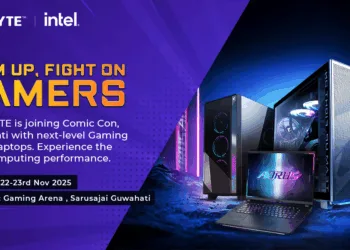In a development that has sent ripples through the tech world, TSMC has officially responded to reports claiming it shipped advanced AI chips to China’s Huawei despite stringent US sanctions. The world’s largest contract chipmaker has categorically denied these allegations, stating it has not provided any products to the Chinese tech giant since September 2020.
Are you wondering what’s really happening behind this high-stakes technological drama? Let’s dive into the details of this unfolding story that sits at the intersection of cutting-edge technology and international politics.
Table of Contents
The Heart of the Controversy: TSMC AI Chips and Huawei
TSMC AI chips (secondary keyword) are among the most advanced in the world, using cutting-edge manufacturing processes. The controversy erupted when industry analysts claimed these sophisticated components had somehow found their way to Huawei, despite strict export controls imposed by the United States.
The Taiwan-based semiconductor giant didn’t mince words in its response: “TSMC has not shipped to Huawei since mid-September 2020 and has always complied with all applicable laws and regulations.”
This statement directly addresses swirling reports from Semi Analysis, which suggested that Huawei had acquired advanced chips manufactured by TSMC through various channels, potentially circumventing the US trade restrictions that have hampered the Chinese company’s technological ambitions since 2019.

Understanding US Sanctions on Huawei and Their Impact
US sanctions on Huawei (secondary keyword) were initially implemented during the Trump administration in 2019, marking a significant escalation in the tech cold war between the United States and China. These restrictions effectively cut off Huawei from accessing critical American technology, including advanced semiconductor designs and manufacturing capabilities.
The sanctions created a complex compliance landscape that TSMC and other global tech companies must navigate carefully. Under these regulations, companies using American technology in their production processes are prohibited from supplying Huawei without special permission from the US government.
“The impact of US sanctions on TSMC and Huawei has reshaped the global semiconductor landscape,” notes industry analyst James Chen. “What we’re seeing is the fragmentation of technology supply chains along geopolitical lines.”
The Complex World of Semiconductor Manufacturing
To truly understand the significance of this controversy, it’s helpful to appreciate the incredible complexity of semiconductor manufacturing (secondary keyword). Creating advanced chips isn’t just difficult—it’s one of the most sophisticated manufacturing processes humans have ever developed.
The chip manufacturing process (secondary keyword) for advanced nodes like 5nm and 3nm involves hundreds of precise steps, specialized equipment worth billions of dollars, and expertise developed over decades. This complexity explains why only a handful of companies worldwide can produce cutting-edge chips, with TSMC leading the pack.
“Advanced semiconductor manufacturing requires billions in investment and years of research,” explains Dr. Sarah Johnson, a semiconductor industry expert. “The barriers to entry are enormous, which is why the restrictions on technology transfer have such significant implications.”

How Did Huawei AI Processors Become the Center of Attention?
The development of Huawei AI processors (secondary keyword) has continued despite significant challenges from US sanctions. Industry experts have been closely monitoring these processors to assess the company’s technological capabilities in the face of export controls.
Reports from the Center for Strategic and International Studies (CSIS) suggested that Huawei might have acquired semiconductor dies before the US sanctions took full effect. These components could potentially be used in the company’s latest AI systems, which have demonstrated impressive capabilities despite the restrictions.
“Despite sanctions, Huawei’s AI chip technology advancements in 2023 have surprised many industry experts,” says tech analyst Wei Zhang. “The question everyone’s asking is: how did they manage this technological leap forward with such limited access to advanced manufacturing?”
TSMC’s Response and Compliance Measures
As the world’s leading semiconductor manufacturer, TSMC plays a crucial role in the global tech supply chain. The company’s statement emphasizes their commitment to regulatory compliance and working proactively with authorities.
“TSMC has been working closely with all jurisdictions where we operate to develop a robust compliance program that guards against unauthorized shipments,” the company stated. This includes implementing enhanced measures to identify and prevent potentially suspicious orders.
The statement from TSMC emphasizes their commitment to regulatory compliance as a top priority. The company has invested significantly in compliance programs designed to prevent unauthorized technology transfers, recognizing the critical importance of maintaining trust with regulators and customers alike.

The Broader Implications for Global Technology
This controversy highlights vulnerabilities in the global semiconductor supply chain and raises important questions about the effectiveness of export controls in an interconnected world.
“The tightening of US export controls on China has significantly impacted the semiconductor industry,” notes policy expert Dr. Michael Roberts. “But this situation demonstrates the challenges of enforcement in complex global supply chains.”
For consumers and businesses worldwide, these developments could have far-reaching consequences:
- Accelerated development of parallel technology ecosystems
- Potential increases in the cost of advanced technology products
- Delays in the availability of cutting-edge AI capabilities in certain markets
- Greater scrutiny of technology supply chains by regulators globally
What Happens Next?
As this story continues to unfold, several key questions remain unanswered:
- How will regulatory authorities respond to these allegations and denials?
- What impact will this have on future technology export controls?
- How might this affect TSMC’s relationships with its diverse global customer base?
- Will Huawei reveal more details about the sources of its advanced AI capabilities?
The controversy centers around how AI chips manufactured by TSMC might have reached Huawei, and the implications extend far beyond just these two companies. The situation underscores the strategic importance of advanced semiconductor technology in today’s geopolitical landscape.
The Bottom Line
The advanced AI chips at the center of this controversy represent more than just silicon and circuits—they embody the complex intersection of technological innovation, international trade, and national security concerns that define our current era.
TSMC has firmly denied reports claiming TSMC advanced AI chips shipped to Huawei through indirect channels. As the company stated: “We have not shipped to Huawei since mid-September 2020 and have always complied with all applicable laws and regulations.”
Whether this statement puts the matter to rest remains to be seen. What’s certain is that the global technology landscape continues to be shaped by both remarkable innovation and increasingly complex regulatory challenges. As companies like TSMC and Huawei navigate these waters, the ripple effects will be felt throughout the technology ecosystem for years to come.
For those following the semiconductor industry, this story serves as a reminder of how critical these tiny components have become to global commerce, communication, and competition between nations. The chips may be microscopic, but their importance to our modern world couldn’t be more enormous.








